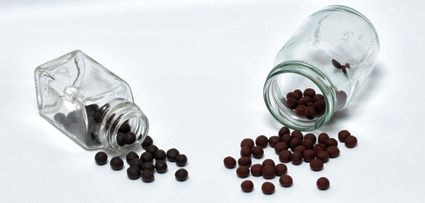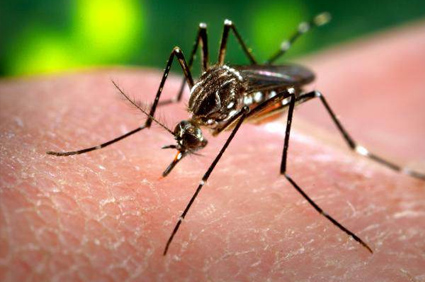
Sri Lankan ‘Rasa’ medical practitioner, Dr. Lalith Kularathna says ‘Rasa’ is the most erudite system of medical treatment in the world–originating in India’s Nalanda University, the first university in the world.
“Mercury is a phenomenal metal. It is ingested in small quantities as a mixture of metals in ‘Rasa’ medicine,” he said. “Mercury doesn’t deposit in the kidney. I gave it to some rats and it showed otherwise.”
Kularathna says that ‘Rasa’ medicine was practiced some 2,500 years ago in what was known as the land of Bharatha. “It is a wholesome and complete form of treatment. It was with this method that the world’s first operation was performed. At the time, only 107 equipment were used to aid in surgery, and even now it is the same number used in New York even,” he explained.
“After 2,000 years of this medical practice, its deficiency was found. Whereas Ayurvedic medicine is plant-based, it was found that certain medicinal plants had systematically perished, while some purposely destroyed. Then there was the problem of finding plants in barren and arid lands. Also, plant-based treatments don’t produce favourable results in a quick and spontaneous manner unlike in a chemical process,” said Kularathna.
Explaining further, he said the active compound in garlic is sulphur. However, to get the benefits of sulphuric treatment, enormous quantities of garlic have to be ingested. In ‘Rasa’ treatment, a small amount of sulphur is used where gold is the main metal, and added to a mixture of copper, zinc and silver, with even more minute quantities of plant-based material.
“In 1898, my grandfather was practicing medicine in Matara and we come from the Belideniya ‘Rasa’ generation. Our family of medical practitioners had cordial relations with our Indian counterparts and they agreed for us to open up this treatment–a symbol of Indian glory–for the benefit of all Sri Lankans. However, the sacrifice we had to make at the time was having to give India 100 lacks in rupees. My grandfather raised the funds by selling-off 66,000 acres of his own land.
“We were a prominent and victorious family in the famous Uva rebellion of 1818, yet were written out of history books–cowards like Keppetipola were accorded a place” said Kularathna, adding with conviction “our patriotism for the motherland still courses through my blood, down generations, throbbing at my heart.”
“After we were sidelined, we went underground and 32 of our families came to settle in the low country under assumed names. This is from where the Silvas’ and Gomes’ come from.
“Though we lived recluse, we studied 42 forms of medical treatment methods and can now prevent 14 different surgeries.”
He said his grandfather studied this treatment for three years and in 1900 started the Sri Mangala Oushada Nishapadanagaraya, a medicine manufacture plant.
“At that time we cured a paralysed person within 72 hours of treatment even though only people about to die came to us as they had nothing to lose.”
“Our families were there in 1907 – 1941 curing Sri Lankans mass-scale from typhoid and tuberculosis. We contained the malaria epidemic of 1936 as only our medicine answered. In 1968 we cured people of Polio before Russia patented the oral vaccine.
“That is the way we re-wrote the history of this country. As long as we laid sturdy foundations we were content to forego fame.
“When George Rajapakse came to Royal College he was hooted at. When I entered the Royal school in 1974 from my privileged background the only question the old boys’ union was asking students at the time for them to gain admission was their ge name.
“I had more points than Chandima de Mel to enter medical school but willingly kicked the MBBS in its hind. I was thoroughly disgusted with the western way of treating disease. However, my favourite subject had always been Chemistry.”
Whilst schooling, Kularathna wholeheartedly believed that before Euclid and Newton, Arya Badda had already discovered the scientific principles. “For the General Knowledge quiz in school I had to write that William Harvey discovered blood circulation. But I knew it wasn’t true. I consciously put the western blueprint for knowledge on the backburner as I knew all of that was first discovered in the Maha Bharatha.
“So one sphere of my brain was always working on negating western knowledge. Buddha talked about the universe and outer space long before that.”
“Do you know that traces of cadmium are found in melon? I paid the research laboratory Rs. 17,500 many years ago to get that tested.
“My wife and I have been treating people with ‘Rasa’ for 23 years now. We are certain that interventions such as bypass procedures are mere fallacy. We alone have prevented 1,079 cases of bypass operations being done on people who have come to us–even cases of gall and kidney stones.
“In 1972 we started looking in to cancer and I cured a dog that had intestinal cancer.
“People had cancer and even diabetes 2,500 years ago as well. But what is cancer in Ayurvedha and ‘Rasa’ is completely different.
“They call it a karmic disease that you have brought from previous births. We’ve learnt otherwise.
“Cells that are acidic cannot take in energy to have cancer cells transformed. So radiation therapy is a waste of time. It is gold that does the trick. In 1991, I found that gold can change a person’s genetic code to successfully treat hereditary diseases.
“In western medicine, an abnormal growth of cells is known as cancer. I took that definition and found the cure for it. I have cured many people here like that, and it has been proven so when they got PET scanned done in Chennai—as there is no place here to get it done,” charged Kularathna.
“All I ask the government is to let me give pregnant mothers a vaccine at the 4-5 month stage, a metal-mixture, so that future generations of Lankan children will be born without disability. My grandfather asked for this in 1924 and 1936, and my father in 1947/48—my wife and I in 1998, but the government won’t allow it.
“All will be revealed after September when I publish this research. But I have to hurry as already a university in Israel wants to patent the gold uni-orb treatment for cancer.”
He concluded valiantly, “I am ready for an open discussion on this challenge.”
On departure from his Rathmalana office I catch the low voices of people coming to him. ‘This is Ibrahim Ismail,’ an interpreter says. “He is in Sri Lanka for four days. No cholesterol or diabetes but doctors say he has heart disease…’ Or the hushed tone of the last appointee, “My elder brother has cancer in his throat and is being cured of it. My younger suffers from gastritis. Reports show his heart efficiency has increased from 32-50%. But he doesn’t tell the conventional doctor that he’s secretly taking Kularathna’s meds. He has beein asked undergo an angiogram but the ‘Rasa’ magician says it’s not needed. They whisper, “The doctor is good,” as if it is he who should not be named. They are told ‘Don’t tell the doctors you are taking this medicine. Make them believe that you are getting better thanks to what they are administering.” It is obvious these patients have been coming for months for this ‘Rasa’ treatment, if it’s truly palatable?—we’ll soon find out.
CEYLON TODAY – By Surani Perera

Amidst increasing threat levels of the dengue epidemic in the country, two ‘herbal’ antidotes for the deadly mosquito bite are now claimed in Sri Lanka.
The dengue problem is reported across the country, but is mostly concentrated in the Districts of Colombo, Gampaha & Kandy. Latest statistics show that in the period of January 1 to July 14 this year, 20647 cases of dengue have been reported. The number of deaths: 149!
There are no licenced vaccines at present against dengue and currently, there is also an ongoing effort to develop a dengue vaccine by Australian & Thai researchers (of Queensland University of Technology) but not before 2014. And for a dengue vaccine to be effective, it needs to be tetravalent, meaning the vaccine should be strong enough to interact and manage four bacteria/viruses at once.
It is in this background that two indigenous ‘Herbal Ayurveda’ doctors and one ‘Metal Ayurveda doctor’ separately claimed two antidotes that appear to hit the nail on its head—lift blood platelet levels of dengue patients.
Both ‘cures’ are derived from common native fruits in the country. These are not total cures for dengue but essentially to get the patient across the most critical phase of the disease—that is, dangerously falling blood platelets stage, which if not treated, could be fatal.
The two ‘herbal Ayurveda doctors’ claim that Papaya leaf juice mixed with bee’s honey increases blood platelet levels and restores the patient. Dr. S.M.N. Ameen, attached to the Welipitiya Ayurveda Hospital (58 km south of Capital) said that Papaya leaf juice mixed with bees honey increases platelet levels and the mix has not shown any complications to the 20 Dengue patients he treated and who improved after the juice is given. An Ayurvedic Medical Superintendent Dr. W.K.M. Abeysekara, of Aparekka District Ayurveda Hospital (170 km south of capital) too claimed of the positive benefits of Papaya leaf juice & bee’s honey on dengue victims. However, there is a caveat: in that, what is less known is that the ‘papaya leaf juice cure’ for dengue patients is a common therapy widely used for years across South East Asia, especially in Thailand. Two raw papaya leaves are pounded, and they are squeezed with a cloth to strain and filter the juice. Usually, one leaf gives one tablespoonful of juice and two tablespoonfuls of p-juice is sufficient for a day. To preserve its strength, the juice should be taken raw, without altering, boiling or any additions. No saps nor stems of the papaya leaf should be included-only the leaf should be crushed. The powerful ‘Papain’ enzyme in the papaya leaf has the ability to dissolve proteins and is already used for indigestion and stomach inflammation while another enzyme from the papaya leaf, ‘Chymopapain’ is used successfully in spinal treatments.
The second antidote is also announced by no less than an Ayurvedic practitioner but specifically, a ‘Rasa Ayurveda’ doctor, according to a Sinhala language newspaper published in Colombo. ‘Rasa Ayurveda’ is a variant of the indigenous Ayurveda medicine and is not based on herbs but based on elements such as mercury and gold that are administered in minute dosages, according to Dr. R. Lalith Kularathne, who practices it from Ratmalana, (a southern suburb of Colombo). His prescription? Eat mangoes —minimum three times a day and drink three glasses of ‘white milk’ 750 ml each. He says that according to his observations, this mango and white milk treatment infuses the ‘acids’ and ‘alkaline’ contents that the body requires badly during the rainy seasons. Mangoes and white milk carry them ‘in plenty’.
Dr. Kularathne, has already ‘patented’ the methodology with the Registrar of Companies of Sri Lanka, according to him.
If scientific, independent medical tests of are positive on either of these ‘antidotes’ –or both-, and if Sri Lanka’s Drug Regulatory Authority too clears the way, then they can prevail. However, it is highly improbable that the herbal based papaya juice solution has not already been patented somewhere in South East Asia by now. This will clearly leave Dr. Kularathne on-stage with the challenge of proving the effectiveness of a mango-n-milk supplement that can withstand the deadly dengue show.
Perhaps it does not matter who prevails—so long as the cure cures, thereby shedding some light at the end of the tunnel for a helpless and weary country.
THE ISLAND – By Joseph Thavaraja
